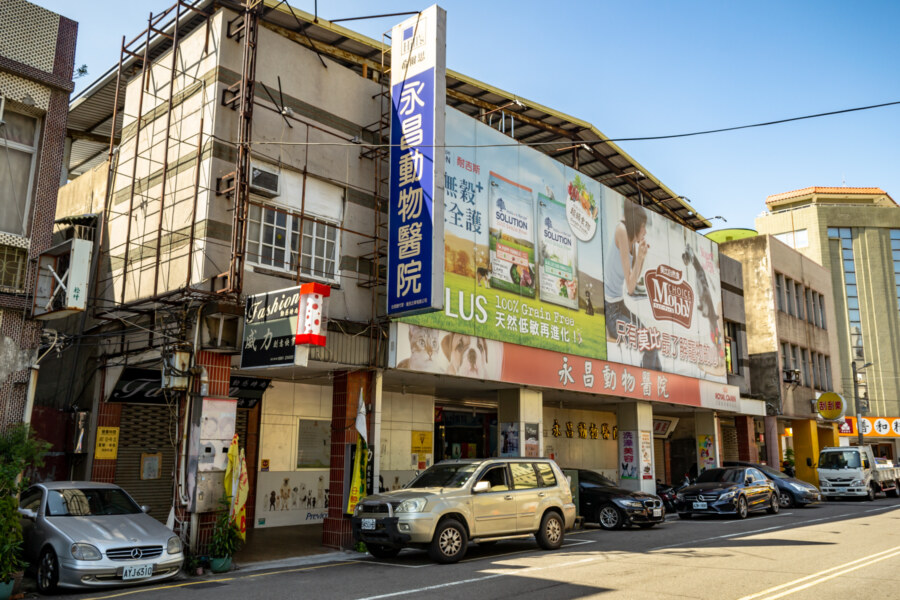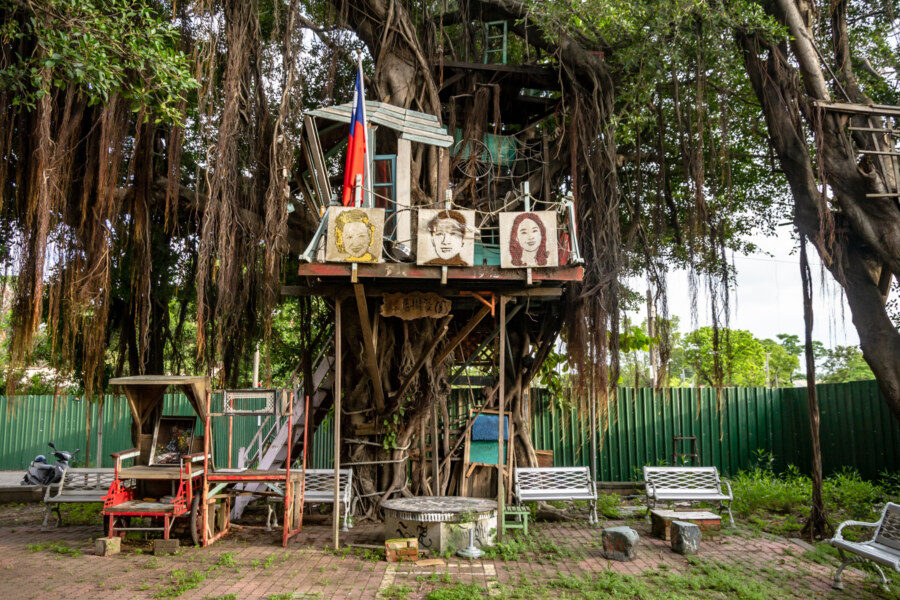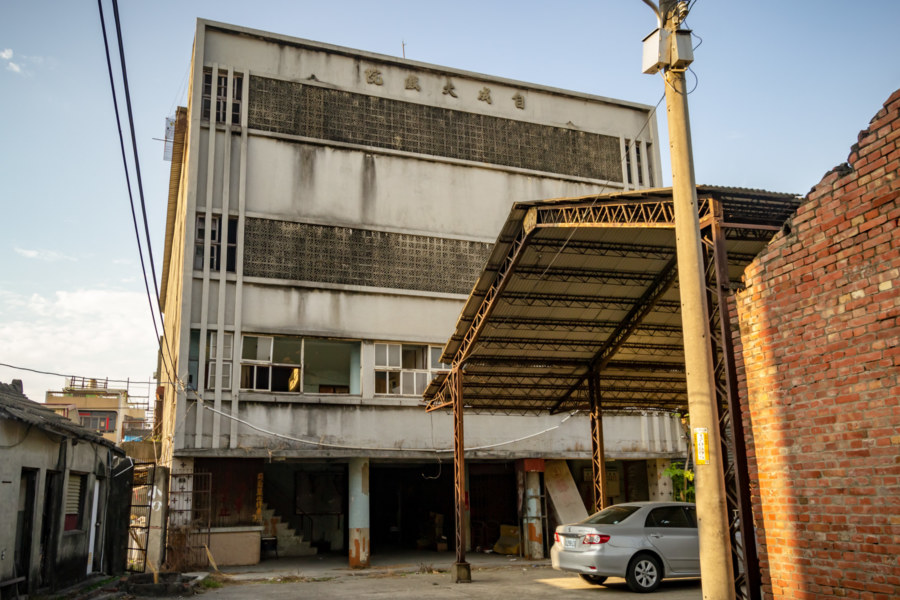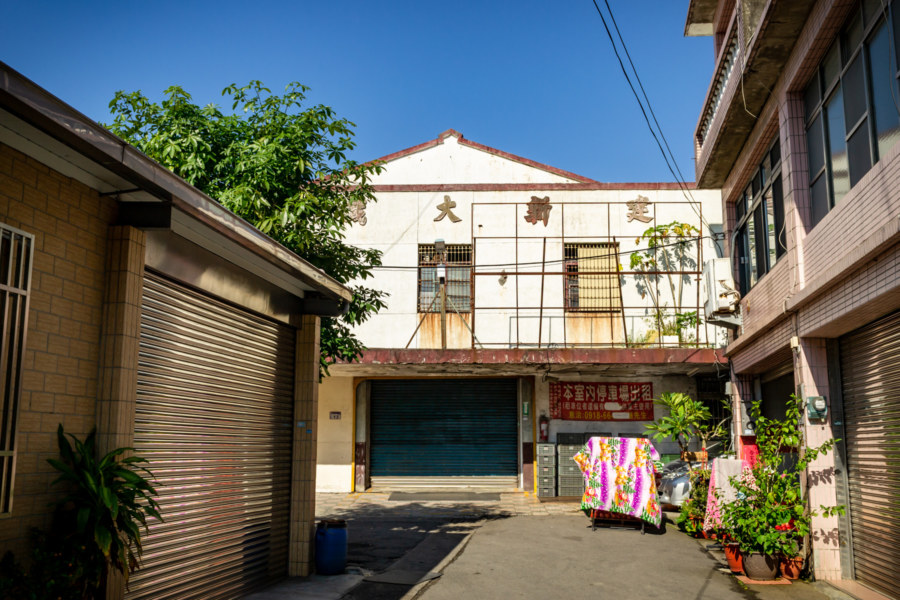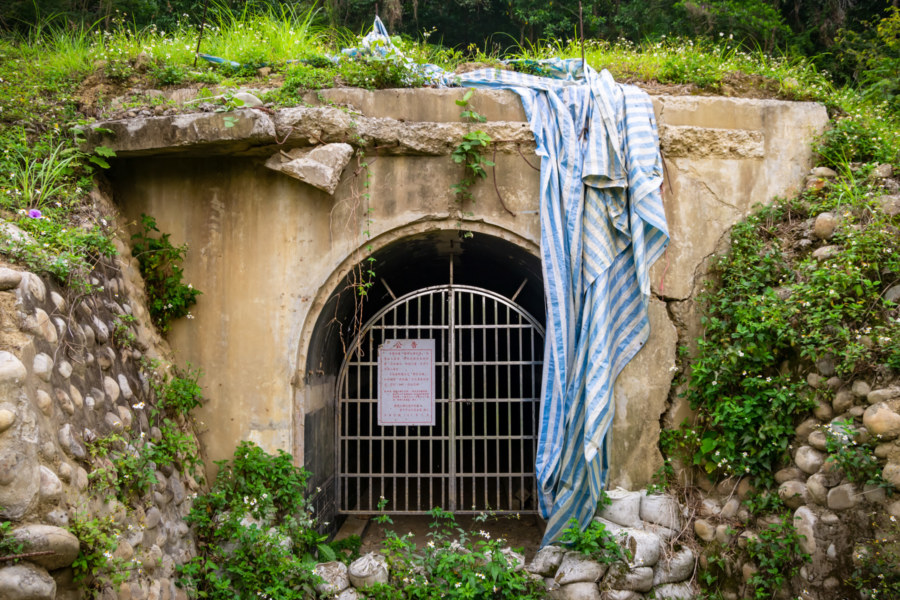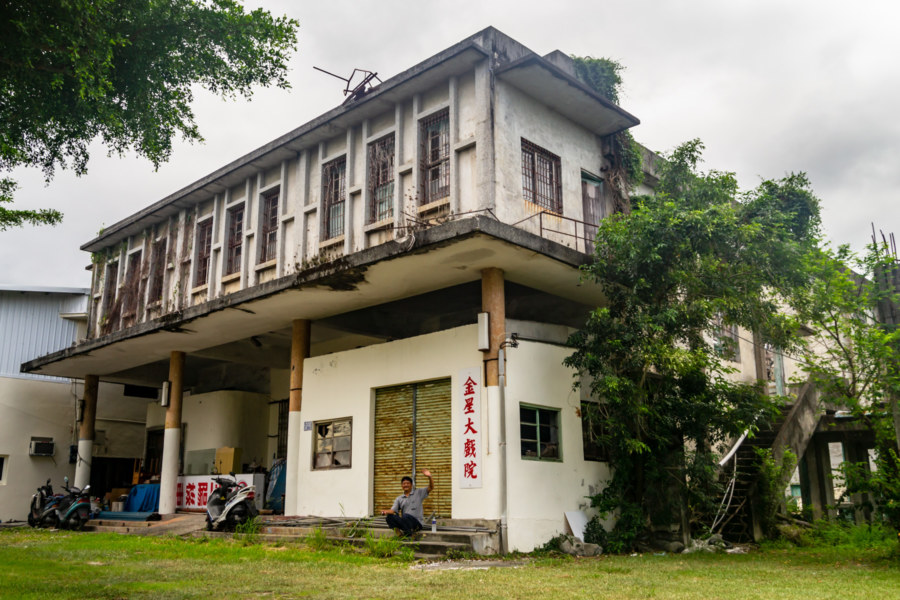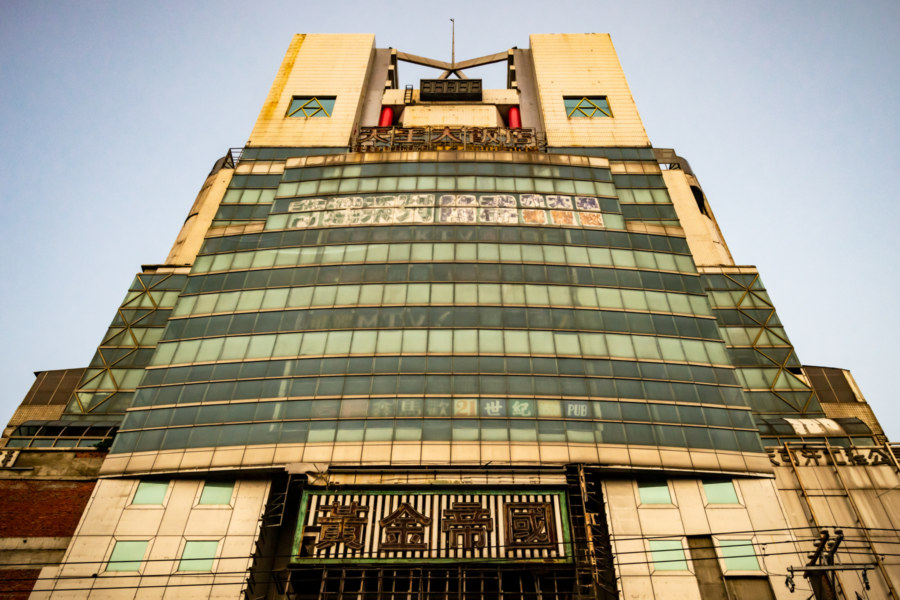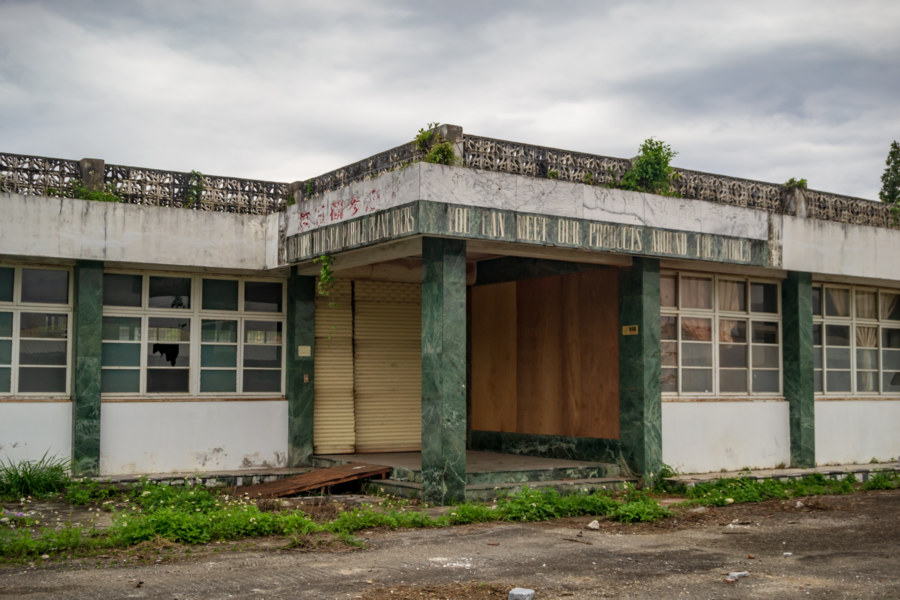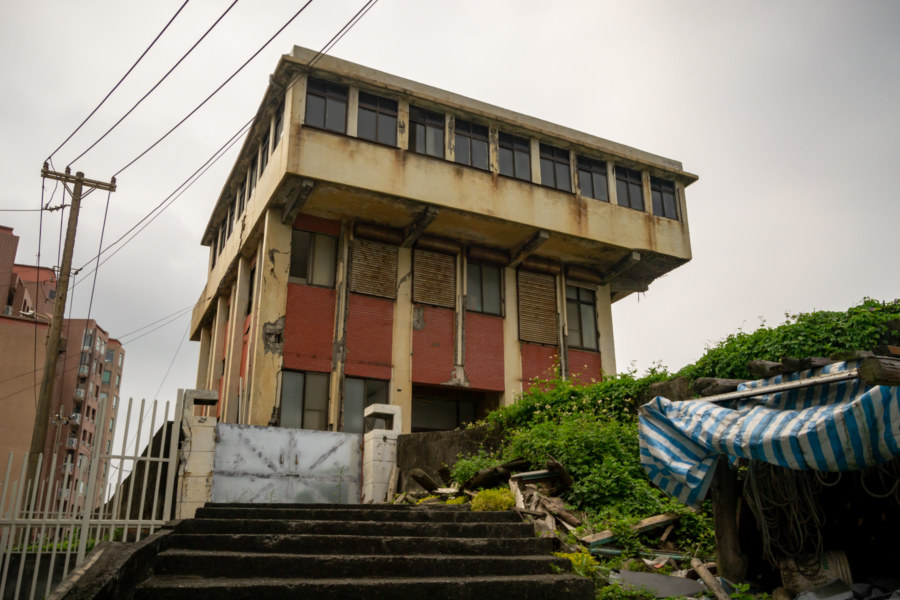The former Miaoli Theater (苗栗戲院) is located in the heart of Miaoli City, a mid-sized settlement of 86,000 residents in north-central Taiwan. Approximately 30 theaters were once found scattered around Miaoli County—with at least 5 located here in the city, but as of 2023 only two of those remain standing (with Guoxing Theater being the other one). Few authoritative sources exist to substantiate the early history of Miaoli Theater, but evidence indicates it was operating in the 1950s, and movies were shown all the way into the early 2000s—an unusually long run for a standalone theater from this era. It was eventually sold, shut down, and converted into the Yǒngchāng Animal Hospital (永昌動物醫院), a pet supplies store and veterinarian clinic.
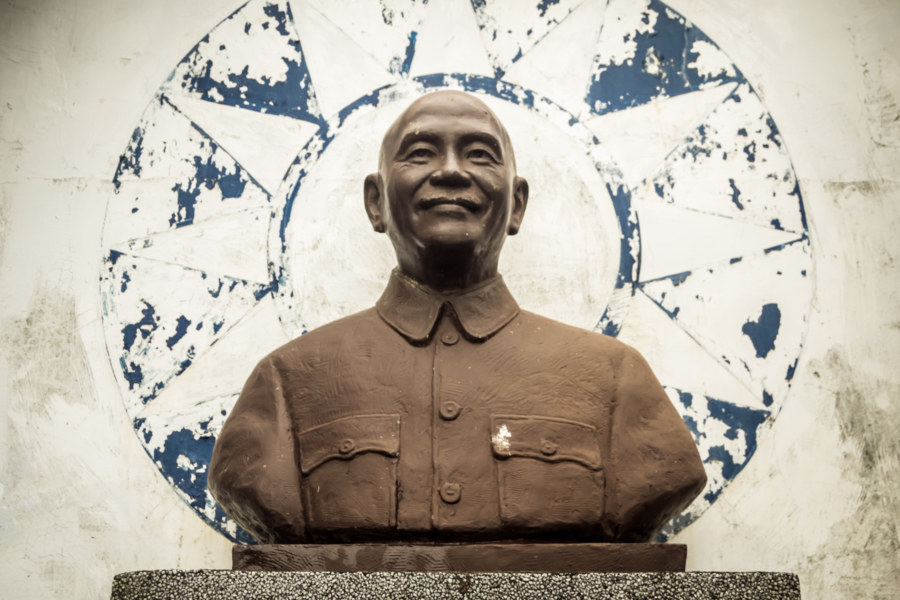
In the aftermath of World War II the Japanese authorities were expelled from Taiwan and the Kuomintang (KMT) invaded from China. Tensions between the local populace and the occupying force boiled over in the bloody February 28 Massacre in 1947, leading to the imposition of martial law and the beginning of the White Terror (白色恐怖) in 1949. For the purposes of this blog the time period from the end of the Japanese colonial era until the lifting of martial law in 1987 and its ultimate end in 1991 shall be referred to as the KMT authoritarian era.
Tainan Second Air Force New Village 台南二空眷村
The Second Air Force New Village (二空新村) is a former military dependents’ village in Tainan, Taiwan. It was established east of Tainan Airbase in 1950, primarily for members of the Republic of China Air Force and their families, and it eventually grew to become the sixth most populous of the official military villages in Taiwan. From 1950 into the 1960s several waves of construction and development increased the village to nearly 1,000 households, with a sizable number of unregistered structures scattered around the periphery. As with most other military villages this one was steadily dismantled and demolished over the course of many years in the late 2000s and early 2010s, part of a nationwide urban renewal program that relocated the remaining residents into more modern apartment blocks.
Zicheng Theater 自成大戲院
Zìchéng Theater (自成大戲院) is a derelict cinema located in Baozhong, a rural township on the coastal plains of Yunlin, Taiwan. After opening in 1966 this theater drew enormous crowds from the surrounding districts, particularly in its early years of operation, when it was customary for movie stars to appear on stage to promote new films. Business began to decline with the closure of the nearby sugar factory and the widespread adoption of home television in the late 1970s, ultimately leading to the final screening sometime around 1985. Since then the theater has remained idle, slowly decaying with the passage of years, its fading fortunes mirroring those of the surrounding settlement.
Daxi Jianxin Theater 大溪建新大戲院
Jiànxīn Theater (建新大戲院) is located in Yuánshùlín (員樹林), a suburban area on the western outskirts of Daxi in Taoyuan, Taiwan. Business records indicate an inception date of 1977, but not much is known about this theater apart from that. The last recorded transaction in 2000 sets an upper bound on when it was operating, but likely went out of business in the early 1990s, when most of the rest of Taiwan’s cinema industry collapsed. It now enjoys a second life as a parking garage for the nearby factories and residences.
Beigou Forbidden City Vault 北溝故宮文物典藏山洞
Beigou Forbidden City 北溝故宮 is an obscure historic site hidden in the hills of Wufeng, Taichung. From 1949 to 1965 it was the provisional base of operations for the team of archivists, curators, scholars, and technicians overseeing the subset of the Palace Museum collection sent for safekeeping to Taiwan by the Kuomintang (KMT) in the later stages of the Chinese Civil War. Nowadays this collection is managed and displayed by the National Palace Museum 國立故宮博物院 (or simply Gùgōng 故宮 for short), situated in Taipei, and almost nothing remains of the facilities in Wufeng. The one exception is an underground vault constructed in 1953.
Jinxing Theater 金星大戲院
Jīnxīng Theater 金星大戲院 is located in the small town of Zhīběn 知本 on the southern outskirts of Taitung City, Taitung, in southeastern Taiwan. Zhiben is home to the Katipul group 卡地布部落 of the Puyuma people 卑南族, one of Taiwan’s recognized Indigenous groups, but this theater was constructed in 1967 to cater to the many KMT veterans who settled here after the completion of the Central Cross-Island Highway 中部橫貫公路. Named after Venus (literally “Golden Star” in Chinese), it went out of business shortly after it was sold to a lumber company in 1980 and has been abandoned ever since.
Postcards From Yuanlin 員林明信片
Yuanlin is a modest settlement of approximately 125,000 residents located on the Changhua Plain (彰化平原) in eastern Changhua, Taiwan. It was formerly the most populous urban township in the nation, but Yuanlin was upgraded to a county-controlled city in 2015, second only to the administrative capital, Changhua City. Considerable work has been done in recent years to improve the urban environment of Yuanlin, and it feels like one of the few places between Taichung and Tainan that isn’t falling into disrepair and emptying out. That being said, urban decay remains widespread in Yuanlin, and there are many interesting ruins worth exploring before they disappear. For students of city planning and development this compact city also has quite a lot to offer—and in this post I aim to introduce some of its more intriguing features, mainly drawing upon photographs from 2013 to 2015, when I was spending significant amounts of time in the area.
RSEA Marble Factory 榮民大理石工廠
I chanced upon the ruins of the RSEA Marble Factory (榮民大理石工廠) while riding around the industrial park on the north side of Hualien City sometime in early 2017. It wasn’t immediately obvious what this derelict factory produced so I decided to stop and take a closer look. Although much of this sprawling site had already been cleared, a few half-demolished buildings remained. In one of these I found a pallet full of product samples and several references to marble, answering the first of many questions on my mind. But there’s always more to examine if you’re curious, so let’s dig into the archives and see what can be learned about this abandoned industrial site in Hualien, Taiwan.
Yeliu Signal Station 野柳信號臺
Green Bay is a forlorn stretch of sandy coastline in Wanli, a rural district of roughly 22,000 residents situated on the rugged northeastern coast of Taiwan. It is widely known for its many derelict resorts, most famously the so-called Wanli UFO Village (萬里飛碟屋), which is what initially drew me here in 2013. I returned a year later and noticed a dilapidated structure further along the beach, an unsightly institutional building similar in appearance to a Taiwanese police station of the 1980s. A closer inspection revealed an interior cluttered with intriguing artifacts and decaying documents—enough to conclusively identify this neglected ruin. This was formally known as the Yeliu Signal Station (野柳信號臺), an outpost responsible for monitoring maritime traffic in the shipping lanes and designated anchorages just west of the Port of Keelung.
Huadong Valley Ride 2018: Fenglin to Yuli
Day three of cycling down the Huādōng Valley 花東縱谷 began with a hearty Taiwanese breakfast not far from the train station in Fenglin, Hualien. I was still recovering from a brush with heatstroke (a story documented in the previous entry in this series) so a traditional breakfast of dànbǐng 蛋餅 (pan-fried egg rolls) and sweet black tea really hit the spot. A glance at the weather forecast indicated another full day of sunny skies and 35°C temperatures on the road—and even fewer opportunities for air-conditioned rest stops. I wasn’t too worried though; my loosely-planned itinerary of former Shinto shrines, industrial ruins, and other historic sites didn’t look all that challenging. Ultimately I ended up putting 60 kilometers of valley behind me, ending the day in Yuli.
